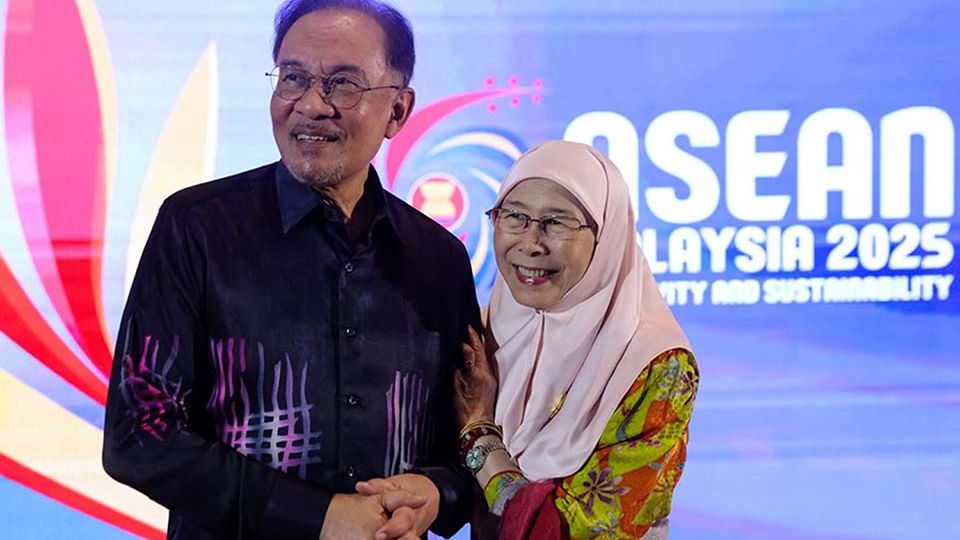June 2, 2025
PETALING JAYA – THE last time two ministers resigned and the government collapsed was in 2021.
Umno’s Lenggong Member of Parliament and supreme council member, Datuk Dr Shamsul Anuar Nasarah, resigned as the Energy and Natural Resources Minister on Aug 3 of that year.
Three days later, Umno’s MP for Parit Sulong and Wanita Umno chief, Datuk Seri Dr Noraini Ahmad, resigned as the Higher Education Minister.
Both said they quit the then Prime Minister Tan Sri Muhyiddin Yassin’s government because they were loyal to Umno.
On July 25, 2021, Umno president Datuk Seri Dr Ahmad Zahid Hamidi announced that the party had decided that all its ministers, deputy ministers, and heads of government-linked companies would relinquish their positions if the Covid-19 emergency ordinances were allowed to remain in effect beyond Aug 1.
Ahmad Zahid also stated that Umno had withdrawn its support for the Perikatan Nasional government, as well as for the leadership of Prime Minister Tan Sri Muhyiddin Yassin.
After just 17 months in power, the Bersatu president quit as Prime Minister.
The other significant resignation, which caused a Prime Minister to lose power, was Tun Dr Mahathir Mohamad’s on Feb 24, 2020. The Langkawi MP quit thinking he had enough support from his peers to remain in the top position. But, the King deemed that his opponent for the PM post, Muhyiddin, had the numbers.
A minister’s resignation from cabinet, which became a footnote in our political history as it did not lead to the government’s collapse, was Datuk Zaid Ibrahim’s resignation as a minister in the Prime Minister’s Department (in charge of Legal Affairs and Judicial Reform) on Sept 15, 2008.
His resignation was a principled protest against Prime Minister Tun Abdullah Ahmad Badawi’s use of the Internal Security Act (ISA) 1960 on three prominent individuals.
This week, two PKR ministers, Datuk Seri Rafizi Ramli and Nik Nazmi Nik Ahmad, resigned as Economy Minister and Natural Resources and Environmental Sustainability Minister, respectively.
Currently, it doesn’t appear that their resignations will lead to the collapse of the government of Prime Minister and PKR president Datuk Seri Anwar Ibrahim.
But it gives the impression that the Madani government is goyang (shaky or unstable).
Rafizi, with his scorched-earth political approach, is a force to be reckoned with now that he has been unleashed – having lost the PKR deputy president post and resigned (pending whether accepted by the Prime Minister) his ministerial post.
I had several conversations with political analysts on whether Rafizi, inside or outside of PKR, will be more disruptive to his party.
Just as his hiruk (noisy) campaign against the contender for his deputy president post Nurul Izzah Anwar was damaging to the party, which was voted into power due to its reformasi (reform) idealism, Rafizi will not stay quiet.
The Pandan MP has posted on X that he had already planned his next steps. However, he didn’t provide any indication of what they would be.
“If he wants to make a Reformasi impact, he should not stay in the party. He will be tied to the party’s hierarchy, which its president now controls. He should do a Sharir Samad,” a political analyst who did not want to be identified told me.
In 1988, Tan Sri Shahrir Samad resigned as the MP for Johor Baru. Sharir was with Umno’s Team B, which was led by Tengku Razaleigh Hamzah, and his move was to test the support of Team A, led by the then Prime Minister and Umno president, Dr Mahathir.
Standing as an independent against Umno, Sharir retained his seat.
It was a morale victory for Team B as Johor Baru was seen as an Umno stronghold seat, and the voters showed through the ballot boxes that they were dissatisfied with the country’s political development.
Despite his victory, Team B’s did not trigger more by-elections.
If Rafizi does a Shahrir and retains his Pandan parliamentary seat, it would be seen as a public rebuke of the majority decision by PKR delegates to boot him out as deputy president. It would also be a referendum of some sort on whether the voters are contended with the pace of reformasi which PKR and Pakatan Harapan had promised to bring if it was in power.
As the cliche goes – “A day is a long time in politics”, Rafizi and Nik Nazmi’s resignations became yesterday’s news.
The big news is now that on Friday, Umno supreme council member Tengku Datuk Seri Zafrul Abdul Aziz resigned from all posts in the party, along with his membership. The Investment, Trade and Industry Minister also said he intended to join PKR.
Immediately after Tengku Zafrul’s announcement, political contacts WhatsApp-ed me asking if this was a sign that Anwar’s government had gone against Umno and PKR, as it seemed like they were on a collision course.
Will Umno’s hiruk (noise) over Tengku Zafrul’s betrayal and intention to join PKR, its Madani partner in government, quieten to a temporary damai (peace)?
What choice does a weakened Umno have?


